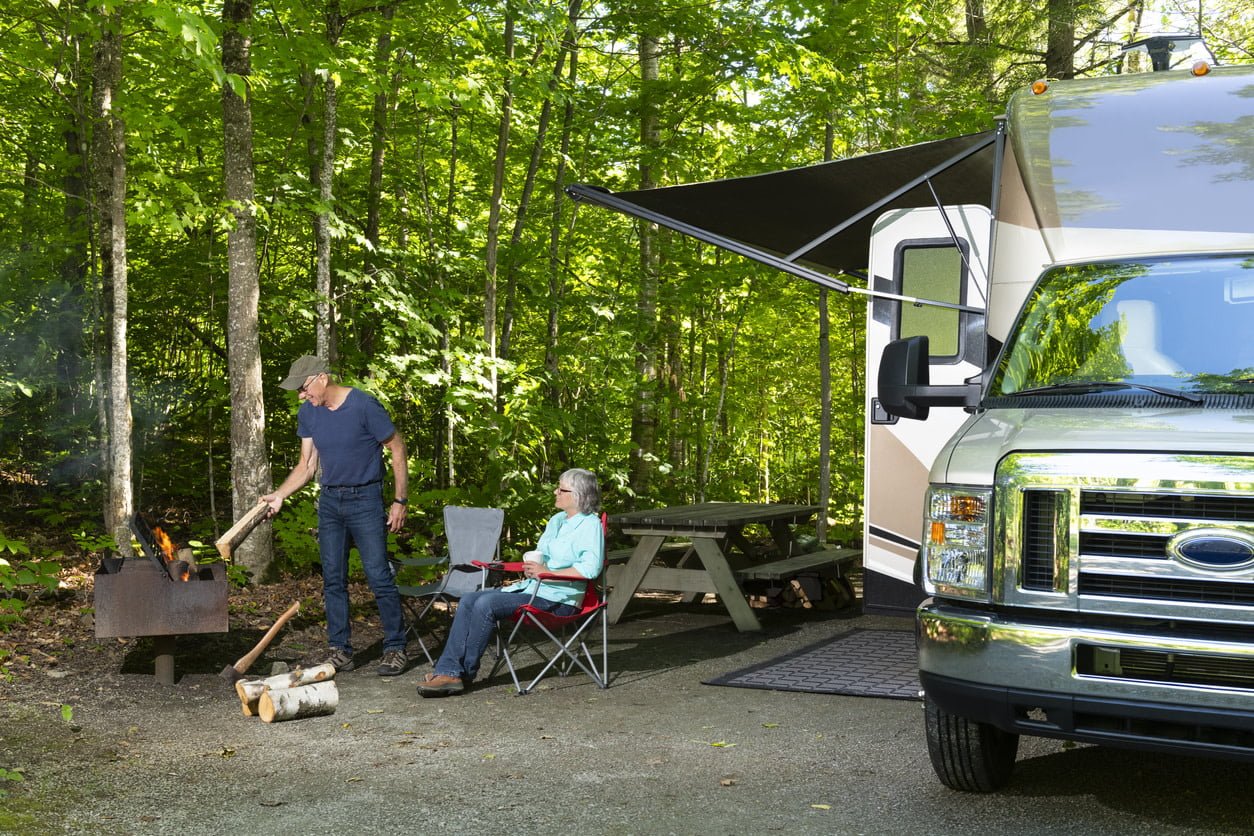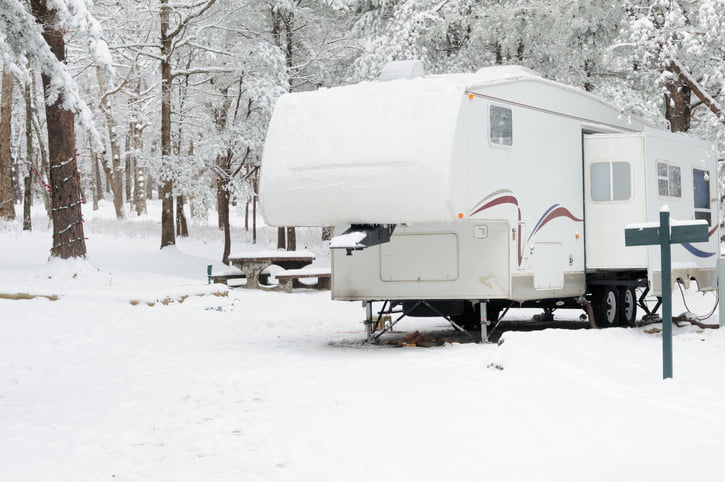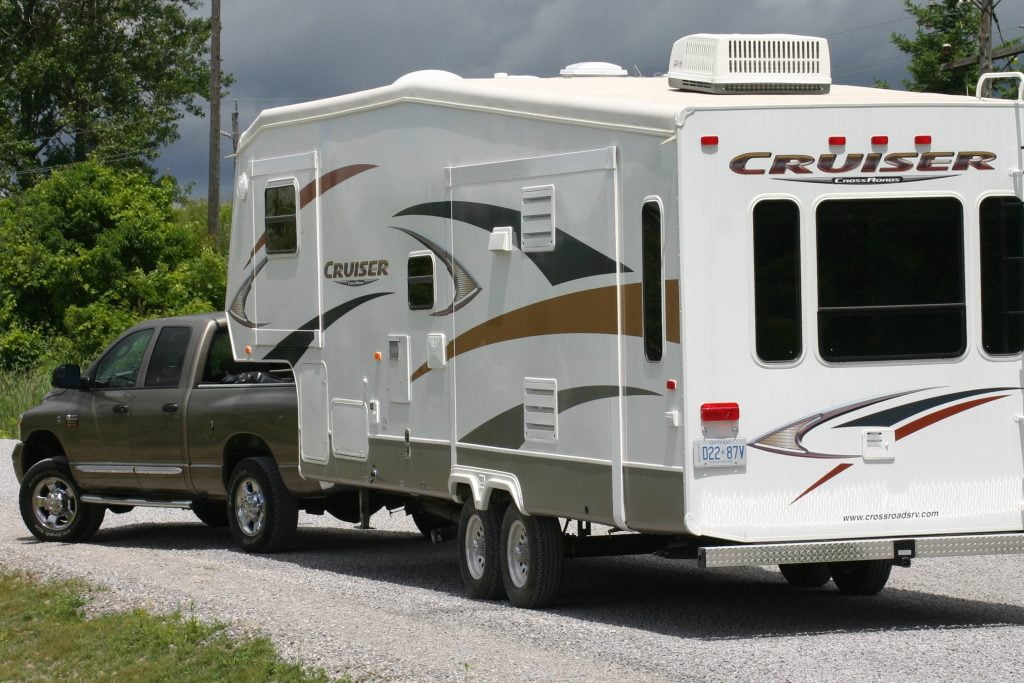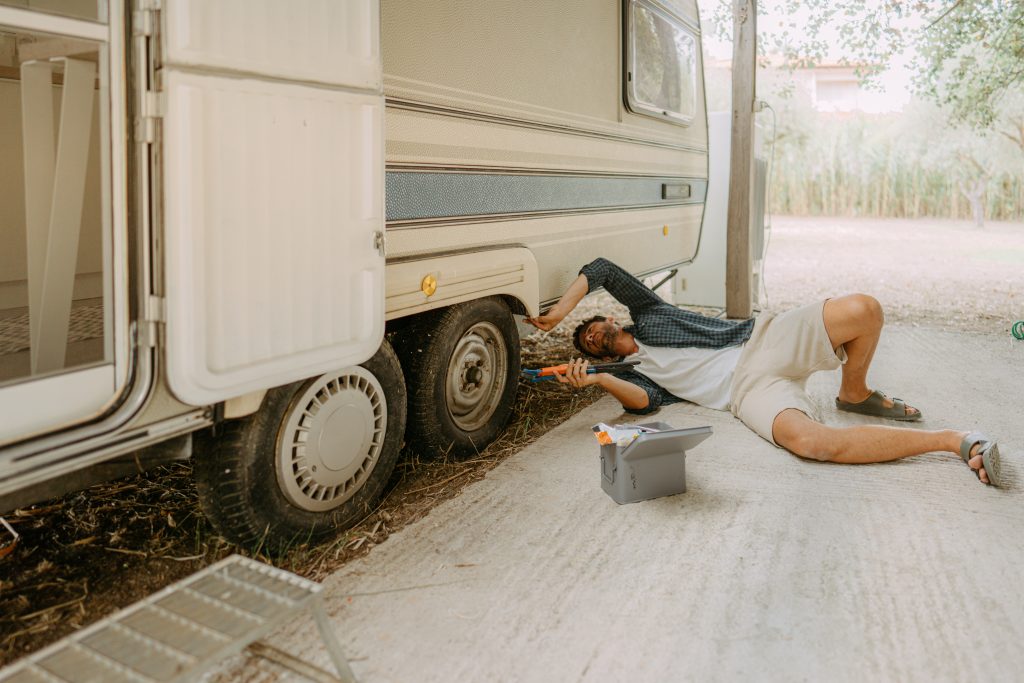At its simplest, an RV is a house on wheels, and just like at home you have systems that service your house, water, electric, gas and HVAC. Knowing your systems and keeping them in good repair is vital. Here are basics to learn so you can relax.
THE LP GAS SYSTEM
All liquid propane systems are made up of three parts, the supply, the delivery system and the appliances. If something is not running, check the system and answer three questions:
- Is there propane in the tank?
- Does the propane flow to the appliances?
- Do the appliances light and work?
From here it may be a simple fix, or a more complex one, but now you’ve narrowed down the problem and can present it to the technician knowledgeably.
Tip* If you’re concerned about a leak; follow your nose, propane has an unmistakable odour. To find a leak, use a soap and water solution brushed on the valve, fitting or line – this will result in bubbles where the gas is escaping. DO NOT attempt to repair a gas system yourself. Take it to a qualified RV mechanic.
THE WATER SYSTEM
After your RV trip you should dump all the tanks (including the fresh water). The right time to dump your waste water tanks is before you leave your park if it has facilities. No point hauling that water weight home. Remember also that stagnate fresh water can grow algae and even if you dump this water later, plastic water tanks can absorb the odour and contaminate the next fill-up.
*Tip A teaspoon of bleach put into the fill hose just before you turn on the city water will sanitize the hose and tank. A water purifier attached to the kitchen tap is also a good investment. Once full, run the pump and open all the taps to run water into the lines and the hot water tank. This will also purge the air out of the lines. Dump some water into the toilet, shower and sink traps to prevent odours from rising up through the plumbing.
Make a habit of doing the following:
- Keep your fresh water full
- Visually check the water lines and demand pump for leaks regularly
- Make sure fill valves are closed when not in use
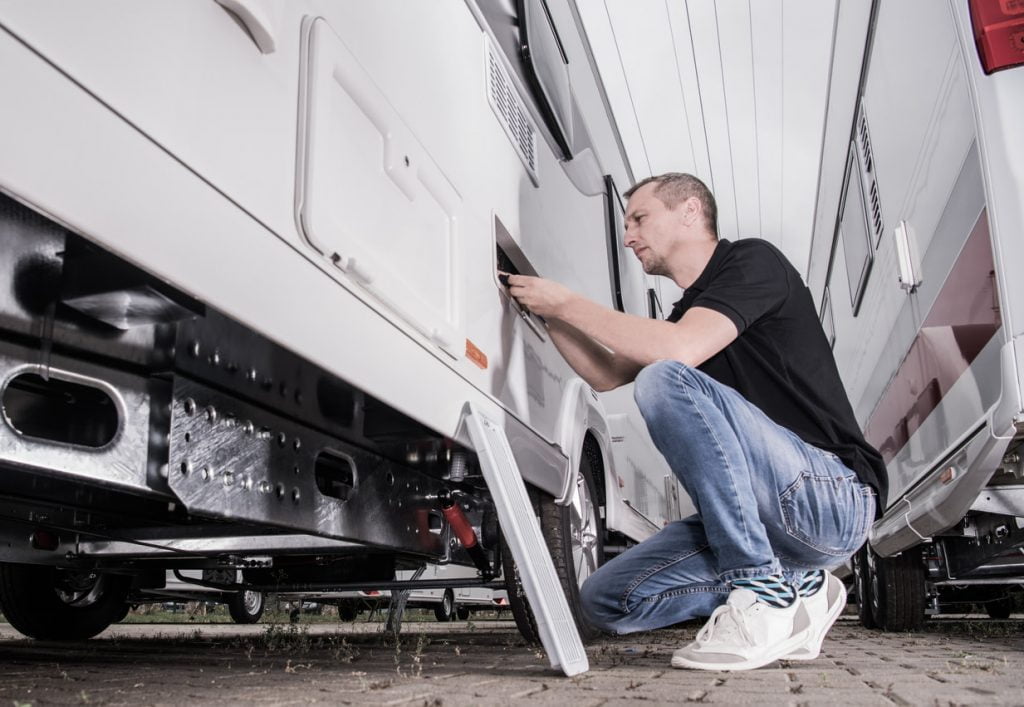
THE WASTE TANKS
Dump your waste as often as possible. It’s that simple. If possible, always dump your tanks before travelling any distance, because with the sloshing around you are bound to get some odours coming back into the RV. All the more reason to use deodorant at the start of the trip, even if the tanks are empty. This will condition the tanks and keep things under control when they begin to fill. Keep the dump valves and hose clean. It takes a few extra minutes but will be paid back in spades when you don’t have to struggle with a dirty, smelly hose. Most folks want to get away from the dump station as quickly as possible, and this is understandable, but pay special attention to how your dump valves are working. Dump valves can jam and get stuck, if they fell sticky spend a few extra minutes and run water into them while working them back and forth.
So, before you set out:
- Dump valves closed and dump caps sealed
- Dump hose clean and in place
- Tanks empty
- Deodorant added
- Water run into all plumbing traps and the toilet bowl
Tip* When you are hooked up to a campground sewer system don’t leave your dump valves open. Instead leave your dump hose connected while your tanks fill but only dump them when they are full. The force of the water will carry the solids and suspended material out of the tank, whereas, if you leave the valves open the water will drain away and leave the solids behind clogging your tanks.
ELECTRICAL SYSTEMS
House Battery:
- Check connections for corrosion
- Observe fluid level in cells
- Check that the main shut-off works
- Try them all, on DC (house battery). Then connect to shore power (AC), run lights, microwave, TV, and HVAC. If equipped with a generator – run it and again see if everything powers up.
INTERIOR LIGHTS AND AC-POWERD SYSTEMS.
Tip* Know where your fuse-panel is, carry spares fuses and when something does not work check the fuses first.
Once you are comfortable with how your RV systems work, their maintenance and use; it’s time to put that knowledge to use in the simplest and most critical phase of any RV trip… THE CAMPGROUND CHECKOUT
Getting setup at a campsite is probably the easiest and quickest of any RV chore. Having arrived you’ll need the services and you’ll want to get hooked up quickly so you can get on to having fun. So, going through the how-to setup is unnecessary. When you checkout the next morning or next week with everyone anxious to hit the road; well, that’s when the majority of disasters strike. Many RVers have forgotten their electrical and sewer hose and have had it ripped off in their hurry to leave. Or left his TV or satellite antenna hanging from a tree branch. The quick getaway is often costly. Create a set checkout habit that’s done the same way every time.
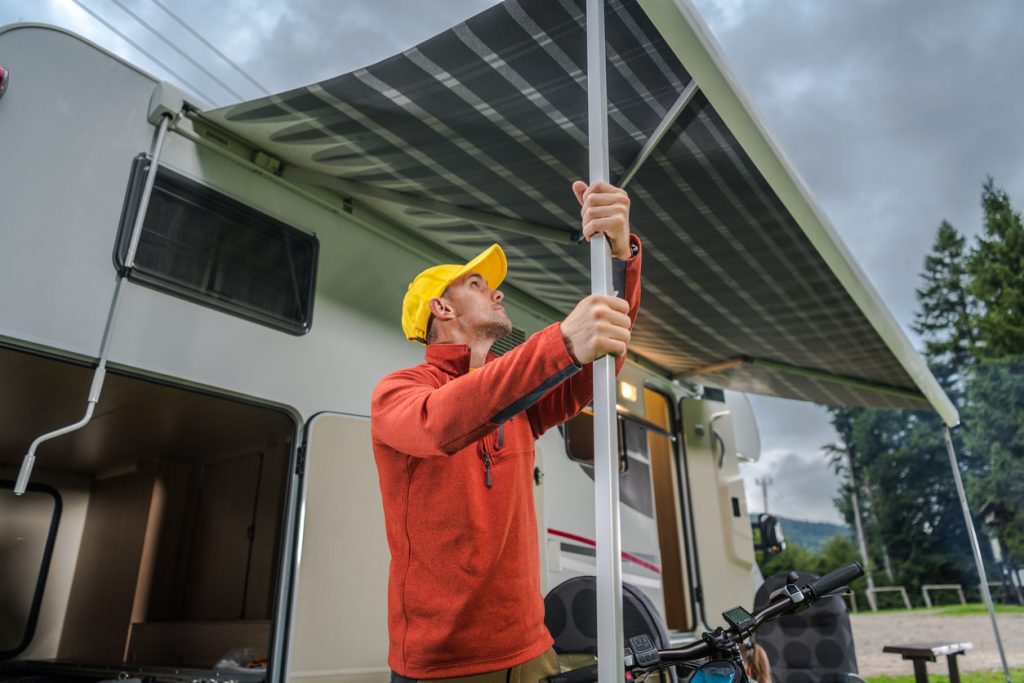
*Tip Make each family member responsible for an aspect of the checkout routine, that makes it quick. Then just before takeoff have each person verbally confirm that their job is done.
These are the basics of the checkout:
- LP gas off (unless otherwise equipped)
- Water pump switched off
- Water in drains and toilet
- All doors closed and latched (including outside “basement storage” doors)
- Roof vents closed
- Windows closed
- All antennas down or stowed
- Electrical, sanitary and fresh water hoses disconnected and stowed
- Engine check, brake check, walk around lights check
- Steps retracted; hitches checked
- Landing gear or stabilizers up and locked
- Slide out rooms retracted and locked
Have a great trip!

